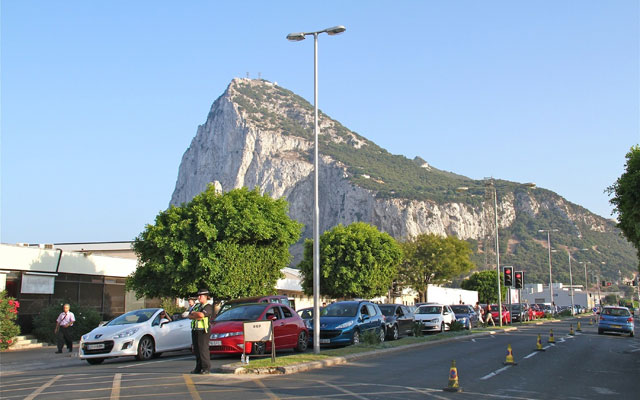Gibraltar Tensions Highlight the Importance of U.S. Engagement in Europe
Daniel Kochis /
This week, the United Kingdom is sending 10 naval ships through the Mediterranean as part of a routine yearly deployment. In light of recent Spanish provocations over Gibraltar, and because some of the ships will anchor at “the Rock,” media is rife with talk of escalation. In reality, the deployment has been planned for some time, a fact acknowledged by the Spanish government. Far from being an escalation, the British deployment is a reminder why NATO is an important security alliance and why U.S. bases in Europe today play an important role in regional security.
Since all 10 ships cannot dock at Gibraltar at the same time, a number of British ships will reach port at the U.S. Naval Station at Rota, Spain, instead. The U.S. presence in Spain is an often overlooked but essential component of America’s engagement with our European allies. It also serves as a further example of why U.S. policymakers should continue to support a permanent U.S. presence on the continent.
The U.S. Naval Station at Rota was established in 1953 and currently houses 1,300 active-duty service members (and their families) from all five branches of the military. It serves two vital purposes. First, it provides a key opportunity for the U.S. to engage with our allies in Europe. The use of Rota by the U.K. naval ships this week exemplifies how the base helps advance the U.S.–U.K. Special Relationship and the U.K.–Spanish relationship.
Second, and most importantly, by having a permanent presence on the continent, U.S. policymakers back home have greater options for responding to security threats in the volatile region abutting Europe. As Luke Coffey of the Heritage Foundation writes, “U.S. military bases in Europe provide American leaders with increased flexibility, resilience, and options in a dangerous world.”
In 2012, the U.S. Navy announced the forward-stationing of four destroyers to Rota. These destroyers will operate in a multitude of diverse missions, including anti-piracy operations, and will form part of NATO’s European Phased Adaptive Approach missile defense system in the region.
Another example of this increased flexibility is the rapid reaction task force the U.S. set up at Moron Air Base in Spain not far from Rota in the wake of the Benghazi terrorist attack. This reaction force will allow the U.S. to protect personnel and assets in Africa more quickly than if assets needed to be sent from a location farther away.
While the British naval deployment stopping in Rota and Gibraltar may be routine, it serves to highlight the importance of U.S. bases and NATO bases in Europe.

